3 Signs & Symptoms of Kidney Stones You Must Never Ignore
Kidney stones are a common health condition that can cause significant discomfort and disrupt daily life if not addressed promptly. These small, hard deposits form in the kidneys when minerals and salts in the urine crystallize. The best kidney stone specialists in Surat say that while some kidney stones can pass on their own with minimal symptoms, others may lead to severe pain, complications, or even long-term kidney damage. Recognizing the early signs and symptoms is essential to prevent further complications. In this blog, we’ll highlight three key symptoms of kidney stones that you should never ignore.
1. Severe Pain in the Back, Side, or Lower Abdomen
One of the hallmark signs of kidney stones is intense, sharp pain, often described as one of the most excruciating types of pain a person can experience. This pain, known as renal colic, typically occurs when a kidney stone moves into the ureter — the narrow tube connecting the kidney to the bladder. The pain is caused by the blockage of urine flow and the stretching of surrounding tissues.
What Does the Pain Feel Like?
● Location: The pain often starts in the back or side, below the ribs, and may radiate to the lower abdomen or groin as the stone moves through the urinary tract.
● Intensity: The pain can come and go in waves, varying in severity. It may be so intense that it makes it difficult to sit still or find a comfortable position.
● Triggers: Physical activity or sudden movements can exacerbate the pain.
Why You Shouldn’t Ignore This Symptom
Pain from kidney stones may initially be mistaken for muscle strain or other common conditions, but ignoring it can lead to complications such as infections, urinary blockages, or even kidney damage. If you experience sudden, severe pain that doesn’t improve, seek medical attention from the best kidney specialist in Surat immediately.
2. Changes in Urination
Kidney stones can significantly affect how you urinate. Since the urinary tract is directly involved in the movement of kidney stones, changes in urination are among the most common warning signs. Paying attention to your body’s urinary patterns can help identify a potential problem early on.
Common Urinary Symptoms Include:
● Frequent Urination: You may feel the urge to urinate more often than usual, even if you don’t produce much urine each time.
● Painful Urination: Passing a kidney stone through the urinary tract can irritate the tissues, causing a burning sensation or pain while urinating.
● Blood in Urine (Hematuria): One of the clearest signs of kidney stones is blood in the urine. This may appear as pink, red, or brown discoloration in the urine.
● Cloudy or Foul-Smelling Urine: If a kidney stone causes a urinary tract infection, you may notice unusual changes in the color or odor of your urine.
Why You Shouldn’t Ignore This Symptom
Changes in urination could indicate a urinary tract infection (UTI), obstruction, or damage to the urinary tract due to kidney stones. Blood in the urine, in particular, should never be overlooked, as it could signal other serious conditions, such as bladder cancer or kidney disease. If you notice persistent changes in your urinary habits, consult a healthcare professional at the best hospital in Surat for further evaluation.
3. Nausea, Vomiting, and Fever
While pain and urinary symptoms are the most immediate indicators of kidney stones, additional systemic symptoms such as nausea, vomiting, and fever may occur if the condition worsens. These symptoms are typically a sign that the stone is causing complications, such as an infection or severe blockage in the urinary tract.
Understanding These Symptoms:
● Nausea and Vomiting: The pain from kidney stones can be so severe that it triggers a nausea reflex or causes gastrointestinal distress. Additionally, the body may react to the stress of the obstruction by inducing vomiting.
● Fever and Chills: If kidney stones lead to a urinary tract infection, you may develop a fever, often accompanied by chills. This is a sign that bacteria are present in the urinary tract and need immediate attention.
Why You Shouldn’t Ignore These Symptoms
Fever, nausea, and vomiting can indicate a serious infection or other complications that may require urgent medical treatment. If left untreated, an infection can spread to the bloodstream (a condition known as sepsis), which is life-threatening. Always seek emergency care if you experience a combination of fever and severe kidney stone symptoms.
Treatment Options for Kidney Stones
Once diagnosed, treatment for kidney stones depends on the size and severity of the condition. The best kidney stone specialists in Surat will use some common treatments including:
● Hydration: Drinking plenty of water helps flush small stones out of the urinary tract.
● Pain Relief: Over-the-counter or prescription pain relievers can help manage symptoms during the passing of stones.
● Medications: Certain drugs, such as alpha-blockers, can relax the ureter muscles, making it easier to pass the stone.
● Surgical Intervention: Larger or obstructive stones may require procedures such as extracorporeal shock wave lithotripsy (ESWL), ureteroscopy, or percutaneous nephrolithotomy to remove or break them apart.
Preventing Kidney Stones
Prevention is always better than treatment. Simple lifestyle changes, such as staying hydrated, maintaining a balanced diet low in sodium and oxalates, and reducing animal protein intake, can significantly lower your risk of developing kidney stones. If you have a history of kidney stones, your doctor may recommend specific dietary adjustments or medications to prevent recurrence.
Conclusion
Kidney stones can be an incredibly painful and disruptive condition, but early recognition and treatment can help minimize complications. Severe pain, changes in urination, and systemic symptoms like fever or nausea should never be ignored. If you experience any of these signs, consult a healthcare professional at the best hospital in Surat promptly. By staying vigilant and proactive, you can protect your kidney health and avoid unnecessary suffering.


 Book Appointment
Book Appointment.png) Video Consultation
Video Consultation

